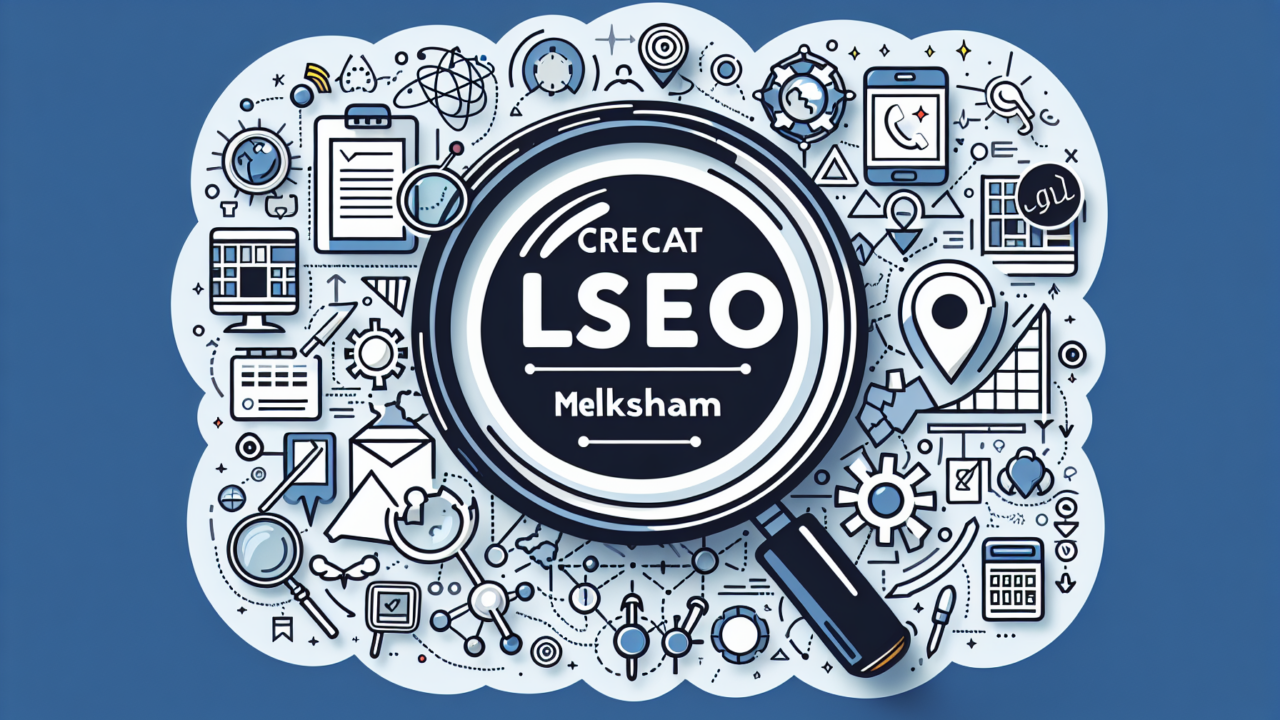Supporting readers interested in how across the United Kingdom for over 30 years.
Ezi Gold provide expert insights on optimising marketing strategies for critical decision moments across various platforms.
Table of Contents
ToggleGrasping the Transformation in Consumer Behaviour
Optimise for Decision Moments: Consumer behaviour has undergone a significant transformation in recent years, and individuals no longer search for products and services in the same way. Instead, they are making decisions in unexpected locations and through various channels. A comment on TikTok, a discussion thread on Reddit, a recommendation from ChatGPT, a review from a friend on Amazon, or a fleeting YouTube video —these are now critical moments when decisions are made. Suppose you continue to focus solely on optimising for rankings, reach, or relevance without understanding how these decisions are made. In that case, you risk not only falling behind but also becoming invisible to your potential customers.
This shift is less about increasing your efforts and more about being present at the critical moment when someone makes a choice, rather than simply at the point of search. As Neil Patel, a leader in the digital marketing field, points out, many businesses are still playing the outdated “Google game” that ended several years ago. They are fixated on rankings, fine-tuning meta descriptions, building backlinks, and striving for that elusive page one position. However, even if you succeed in ranking on Google, you may still lose customers in the process.
Avoiding the Google Trap for Better Marketing Outcomes

Google manages an astonishing 13.7 billion searches daily, which appears impressive at first glance. However, this accounts for only 27% of all internet search activity. The remaining 73% occurs across various platforms such as Instagram, TikTok, Amazon, Reddit, YouTube, and ChatGPT, many of which businesses do not consider search engines at all.
While you might be competing for the top Google ranking, your customers are likely making actual purchasing decisions on platforms like TikTok. They validate these choices through discussions on Reddit, seek recommendations from ChatGPT, and consult Amazon reviews. If your brand is absent from this process, you risk being entirely overlooked. This phenomenon is what Neil Patel calls the Google trap—focusing on visibility in one arena while your customers are making decisions across multiple platforms.
The consequence of this approach is clear: your traffic metrics may appear healthy, but your conversion rates remain stagnant. Your high search rankings may not translate into sales, as you may be visible in search results but still miss the moment of decision-making.
Analysing the Modern Consumer Journey
Consumer behaviour has fundamentally changed, and unfortunately, many marketers have failed to recognise this shift. People are no longer searching in the traditional sense; they are not merely typing keywords, sifting through lists of links, and meticulously evaluating their options. Instead, they are making quick-fire decisions across multiple touchpoints, often in unexpected contexts.
From a neuromarketing perspective, the contemporary consumer journey resembles a constellation of micro-decisions rather than a straightforward funnel. The reality of this journey includes various factors, such as:
- What to click: Google
- What to trust: Reddit threads and reviews
- What to buy: Amazon, TikTok Shop
- What to try: App store ratings
- What to think: YouTube videos and podcasts
- What to believe: ChatGPT, Claude, other AI models
- Who to follow: Instagram and LinkedIn
- Who to cite or reference: AI sources
Each of these platforms serves a unique psychological function in the decision-making process. These micro-decisions occur simultaneously rather than in a linear sequence, sometimes within mere minutes. For instance, a consumer might discover your product on TikTok, read reviews on Amazon, validate their choice in a Reddit discussion, seek alternatives via ChatGPT, and ultimately make a purchase, all without ever visiting your website.
Every platform represents a distinct context, each search reflects a unique behaviour, and every mention serves as a trust signal. Each content format functions as a powerful lever of influence. If your brand isn't visible during these moments of micro-choice, you will be absent from the conversation, regardless of your Google ranking.
Implementing Comprehensive Search Everywhere Optimisation
With the traditional marketing playbook proving ineffective, what is the new strategy? It is termed Search Everywhere Optimisation, which precisely conveys its intention. Rather than focusing solely on optimising for one search engine, you must optimise for every platform where key decisions occur, including Google.
SEO is not obsolete; it has simply expanded significantly. Conventional SEO aimed to enhance visibility on Google, while Search Everywhere Optimisation seeks to ensure your brand is chosen across the entire digital landscape. This necessitates designing your content, online presence, and overall brand strategy to ensure visibility in all spaces where your customers are genuinely making decisions, not just within Google’s confines.
This strategy explains why Neil Patel's company acquired the app store optimisation firm, Yo. The objective is to target every platform where a potential customer may discover, validate, or choose your brand over competitors.
Search Everywhere Optimisation is not about quantity; it focuses on strategic visibility. It is essential to recognise that when someone requests a recommendation from ChatGPT, your brand must be included in that response. When consumers seek honest opinions on Reddit, your company should be referenced. When browsing Amazon, your reviews must be prominent. This is crucial because these platforms do not merely influence decisions; they are integral to the decision-making process.
Crafting Platform-Specific Strategies for Effective Engagement

This is where many businesses falter—they attempt to apply the same marketing strategy across various platforms. They take a blog post, copy it to LinkedIn, share a snippet on Instagram, and possibly adapt it into a YouTube video. This approach is fundamentally flawed. Each platform operates as its own decision-making engine, with distinct psychological influences, algorithms, and user behaviours.
On TikTok, emotional appeal and novelty drive decisions. Users prefer content that elicits feelings rather than requiring deep thought. Thus, your content must be immediate, visually appealing, and emotionally engaging. Conversely, YouTube prioritises viewer retention and perceived expertise. Audiences visit this platform to learn, evaluate, and seek authority, and they desire in-depth content that reflects your expertise.
ChatGPT emphasises citations and semantic clarity. AI systems do not respond to flashy visuals or emotional triggers; they require clear, factual information sourced from reputable authorities. On Amazon, consumers seek social proof and trust; they tend to bypass product descriptions in favour of scrolling directly to reviews, wanting insights into real user experiences.
Instagram represents aspirational identities. Consumers are not just purchasing products; they are investing in a lifestyle or an ideal version of themselves they aspire to embody. Reddit, on the other hand, values raw authenticity, with any hint of marketing language likely to be met with scepticism. Users crave honest, unfiltered opinions from genuine individuals.
The key takeaway is that you cannot employ a singular playbook across all platforms. What succeeds on TikTok may not resonate on LinkedIn, and what converts on Amazon might fail on Reddit. Each platform possesses its own unique decision-making code, and aligning your content and brand presence with that code is imperative. This underscores the necessity for platform-specific strategies as part of the Search Everywhere Optimisation framework, rather than merely adapting content for various platforms.
Distinguishing Between Visibility and Validation in Marketing
A common misconception that ensnares many marketers is the belief that visibility equates to success. They may observe their content garnering views, their posts receiving engagement, and perhaps even some traffic directed to their website, leading them to conclude that they are succeeding. However, visibility merely serves as the entry point; what truly drives decision-making is validation.
Visibility involves appearing in search results, whereas validation encompasses being included in discussions. Visibility means having an account on TikTok, while validation is when someone references your brand in their own TikTok video. Visibility involves ranking on Google, but validation requires being cited by ChatGPT when someone seeks recommendations.
Visibility pertains to what you do, while validation reflects what others say about your efforts. Understanding this distinction is increasingly vital. AI does not browse search results in the same way humans do. Instead, AI systems summarise content based on mentions and trustworthiness. If your brand is not included in the validation network—failing to be referenced in Reddit discussions, cited in articles, reviewed on Amazon, or mentioned in podcasts—you effectively cease to exist in the AI-driven decision-making landscape.
This underscores the importance of Search Everywhere Optimisation, which focuses on earning trust signals across platforms rather than merely generating content. In an era where AI increasingly dominates recommendation systems, building trust is not only good business practice; it is essential for maintaining visibility.
Utilising the RICE Framework for Strategic Focus
You might be wondering, “Neil, does this mean I need to be active on every single platform?” The answer is no. The brilliance of Search Everywhere Optimisation lies in the fact that you do not have to be everywhere; you need to be trusted in the key areas that matter most.
Neil Patel offers a useful framework known as RICE to help prioritise which platforms to concentrate on:
- R is for Reach: How many individuals utilise that platform daily?
- I am for Impact: What potential business impact could this have?
- C is for Confidence: How confident are you in your ability to succeed on this platform?
- E is for Ease: How straightforward is the execution of your strategy?
You can assign scores from 1 to 10, multiply by the reach figure, and determine where to begin your efforts. For most businesses, this typically involves focusing on two to three platforms at most, rather than attempting to engage with ten or more. Over time, you can expand your efforts as needed.
Perhaps your strategy involves gaining citations from ChatGPT and mentions in Reddit threads. Alternatively, you might aim to dominate Amazon reviews or become the go-to expert referenced by podcasts. The goal is not to achieve omnipresence; it is to establish a strategic presence.
When executed effectively, your influence across platforms compounds automatically. Being referenced in a popular Reddit thread can improve your Google indexing, while being cited by ChatGPT reinforces your authority across the board. Excelling in Amazon reviews can shape purchasing decisions that originated on TikTok.
Ultimately, it is not about maintaining a presence on every platform; it is about being intricately woven into your industry's decision-making process. Once you establish yourself in this cross-platform trust network, Search Everywhere Optimisation will begin to work for you, rather than the other way around.
Capitalising on the Current Opportunity in Marketing

The reality is that many of your competitors are still ensnared in the Google trap. They continue to engage in outdated battles, while a significant number of marketing teams struggle to keep pace with Google's algorithm updates, let alone optimise for TikTok, ChatGPT, and Reddit simultaneously. This presents a remarkable opportunity for you to forge ahead by embracing the new landscape while others remain preoccupied with antiquated rules.
Begin by selecting one platform outside of Google that aligns with where your customers are most likely to validate their purchasing decisions. Focus on building trust within that space before expanding your efforts elsewhere. If you wish to delve deeper into optimising for AI and large language models, Neil Patel recently published a video discussing strategies for training AI models to favour your brand over competitors.



















2 Comments
This really highlights a crucial shift in the marketing landscape that many of us are trying to navigate. I’ve noticed in my own life how decisions often happen in spur-of-the-moment contexts, whether that’s scrolling through TikTok during a lunch break or seeing a friend’s product recommendation while chatting on a messaging app.
This really highlights a crucial shift in the marketing landscape that many of us are trying to navigate. I’ve noticed in my own life how decisions often happen in spur-of-the-moment contexts, whether that’s scrolling through TikTok during a lunch break or seeing a friend’s product recommendation while chatting on a messaging app.